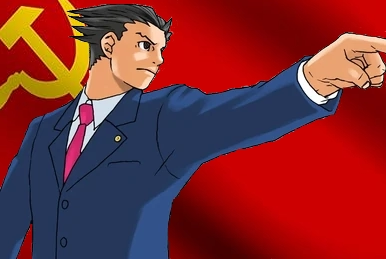Opposition to hierarchy.
From Greek for without rulers. Anarchism is rooted in opposition to forms of domination and coercion; historically, its three main opponents have been the Church, the State, and capitalism. The main Western tradition of anarchism dates back to the advent of socialism, although there have been many anarchic societies and philosophers the world over for pretty much as long as people have existed.
There are lots of forms of anarchism, generally relating to either different visions of an ideal horizontal social structure, or just boiling down to what that particular activist focuses on (anarcho-feminists are mostly concerned with patriarchy, for instance). Mostly, anarchists aren’t prescriptivist - as long as people are trying to take power into their own lives, anarchists are for it.
What counts as hierarchy? Like, if I pay a plumber to fix my plumbing problems because I don’t know how to, does that imply some hierarchy between us?
No, because the plumber doesn’t have power over you.
Your boss has power over you - he can decide to remove your source of income, and uses that as leverage to get you to do what he wants.
Your government has power over you - they have a monopoly on the use of violence and use it to maintain control.
Your preacher has power over you - by making you afraid for your soul, he can manipulate you unwillingly, or severely impact your social status.
Your plumber is someone providing a service, that’s completely different.
It doesn’t seem that different, in essence. He could withhold his service and let my bathroom flood.
And you call a different plumber.
But that’s what people say about bosses. You don’t like this one, go get a different one. I’m not understanding the difference in terms of hierarchy and power and so on.
If you don’t understand the difference between a boss and a tradesman that you called, then I’m out. Either you’re too dense to understand, which would make explaining a waste of time, OR you’re just sealioning, as i suspect, which would make explaining a waste of time.
Okay. Maybe someone else can explain.
I’m not an anarchist but I’d like to elaborate on your question.
In a competitive economy (big disclaimer), especially in the case of plumbing which has a low barrier to entry, you and the plumber don’t have a significant power differential. You need a plumber, but you don’t need that specific plumber, and the plumber needs customers but they don’t need you specifically. If a bunch of plumbers got together and said they won’t work for you, it wouldn’t be too hard for someone to learn the trade and break the monopoly, in the same way, you could try to boycott the plumber, but they could just find other customers.
But that’s in the theoretical case of like, the free market actually working. There are lots of ways in which it can go wrong. If the barriers to entry are higher, then it’s easier to form a monopoly, and in some industries that barrier is naturally higher (say, microchip production), and it’s also possible to raise the barrier of entry if an entity gets powerful enough to influence policy - for example, if you had to obtain an expensive license to be allowed to practice plumbing. So it’s really two questions: is trade inherently explotative, and is trade potentially exploitative?
Boycotts are sometimes idolized as a way to prevent bad behavior without the involvement of the state. But this is problematic for two reasons. The first being that boycotts are difficult to organize and only sometimes effective. The second is that to the extent that they are effective, they’re not always used to do good things. To use an example, we can look at the Jim Crow South. If I own a business in a town full of racists, and I try to run my business in a non-racist way, then I’m alienating a bunch of my racist customers and racist businesses may refuse to serve or do business with me, until I go bankrupt or am forced out of town. This problem was only solved through federal intervention through the Civil Rights Act.
Under those circumstances, it’s difficult for me to imagine how anarchism could work. As a trans person from the southern US, decentralization and giving power back to local communities sounds nice on paper, but like, have you seen these communities? Have you looked at what they’ve done historically when federal authority was looser? Who is poised to take power in those regions in the event of the abolition of the federal government?
That doesn’t mean that anarchism is fundamentally unworkable everywhere, though. It just means that you have to evaluate the actually existing material and social conditions and figure out what can be done where based on that.
Well said. I feel like an anarchist society would have to figure out problems like that.
exchange AFAIK isn’t considered hierarchy, a trade of goods (in your example money for service) is equal
Hierarchy must justify its existence, or it must be dismantled.
I like this definition. It makes sense to have one or a small selection of elected officials to make decisions that need to be made quickly or that it’s difficult to come to a clear consensus on. But if those requirements aren’t met its very likely a decision made by public consensus.
One thing to point out: it doesn’t say “elected”.
In theory it might be just the best leading person for a role.
That in itself is the most complex issue in my opinion: where do leaders come from and how do you make sure that they don’t overstay their need? It’s an unresolved issue and democracy is our best answer yet, in my opinion.
I say we do it like jury duty. Make everyone do it at least once.
“Ah fuck… Gonna have to figure out how to get out of President duty next week…”
Haha my association is “ah damn but I didn’t wanna build a hospital! I’ll just take those people and material and we’ll build a the night awesome cemetery ever!”.
Dunno why my mind went there but I’ll have to thank you for that!
But that’s just a pithy statement that someone of any political position would likely agree with. Everyone wants their government to be efficient. What does justification mean to anarchist specifically?
Nope. You’re wrong.
I have recently started reading “Anarchism and other Essays” by Emma Goldman, and it’s very enlightening about what the ideology actually means. I highly recommend checking her out. She was an absolute badass.
Also, I believe Kropotkin is considered some sort of anarchist, and I would also recommend reading his book, “The Conquest of Bread”. I’ve found Kropotkin to be a great writer, and his stuff is pretty compelling rather than dry (which this stuff can be). I’m currently reading “Mutual Aid: A Factor in Evolution” by him, and it’s also great so far.
I don’t necessarily agree with Kropotkin’s concepts for fixing things, but I’ve found that he was incredible at describing the problems. So much of it could have been written yesterday, it’s still all so relevant. Despite being written over 100 years ago.
I’m not sure I would call myself an anarchist, but after educating myself about their actual ideals, I find that I agree with quite a bit.
So far the only things I’ve seen anarchists do is be anti establishment, make vague comments about removing hierarchy and refuse to elaborate. Generally I think it’s pretty broad term non-specific enough in common language to apply to many things but people in anarchist communities all tend to have their own specific ideas and definitions of anarchy. Which I suppose makes sense given the term in question.
Yeah, by posting here I was hoping someone would elaborate on the hierarchy part, in particular. I don’t understand it.
Politically they want smaller and more local government. There are anarchists on the right who want freer markets and anarchists on the left who want stronger unions.
Anarchists want government?
You can’t handle the logistics of a modern civilization without some kind of administration. Someone has to collect, allocate, and distribute resources to the various public services necessary for a functioning society.
There are “anarcho-capitalists” who might claim to want to dismantle all government in favor of totally unregulated capitalism, but that’s just trading out elected officials for the private boards of massive companies. Else they temper that private power with “citizen advocacy boards” which, after a long enough conversation with an an-cap willing to earnestly answer questions, eventually develop into something indistinguishable from government.
Government is necessary, anarchists want government without oppressive hierarchies. I say oppressive, because organizational hierarchies are really the only way to quickly and efficiently handle large projects. The problem arises with authoritarian hierarchies, when the scope of hierarchical power expands from clerical to tyrannical.
That makes sense to me.
They want changes to the government. It’s like I said bro wants fewer oranges and you said bro wants oranges?
Yeah because I thought “no government” was central to the very concept of anarchism. I’m really surprised to learn otherwise.
“Government” is a very vague term.
Anarchists are opposed to rulers, not rules. We want to be able to establish our own rules directly. The form of social organization depends largely on the anarchist you’re talking to, but most of us support some variation on federated communes utilizing direct democracy and delegates, not representatives.
Honestly, just read The Conquest of Bread by Petr Kropotkin. It’s available free at thebreadbook.com
E: .com my bad
No they do not want government. If you want a more accurate description of anarchism ask this on the anarchist community.
Political anarchism is a lie. Anarchism isn’t political. Anarchy is life. It’s fair.






